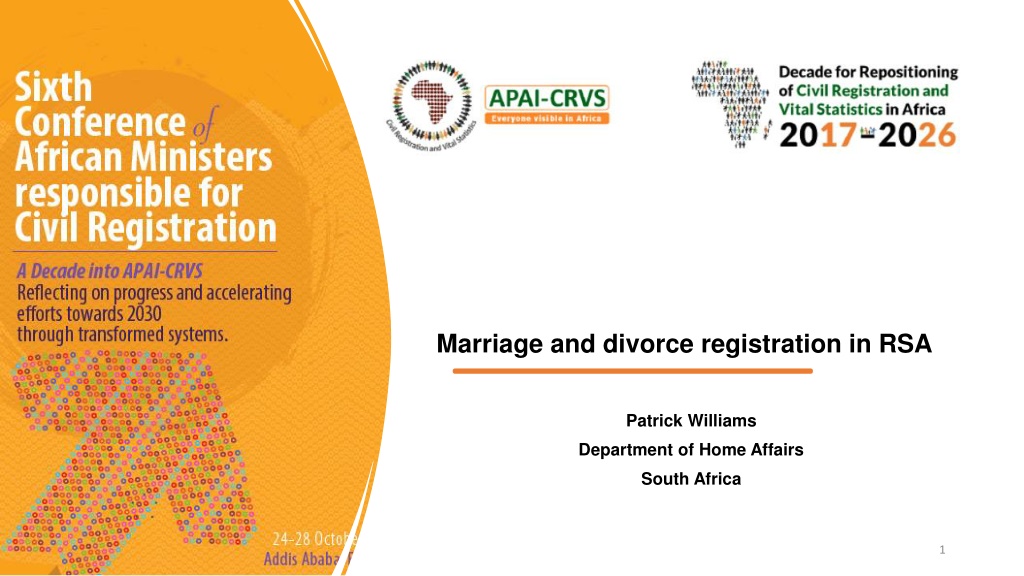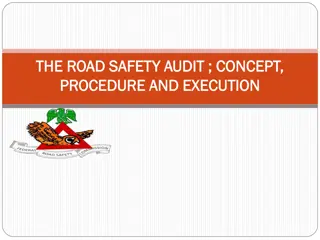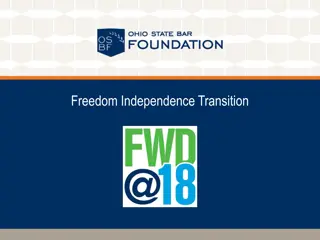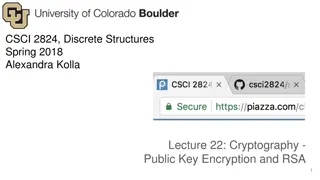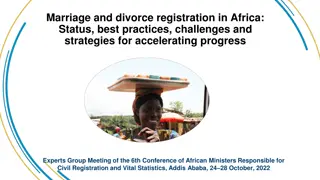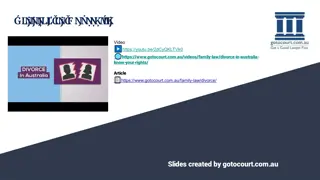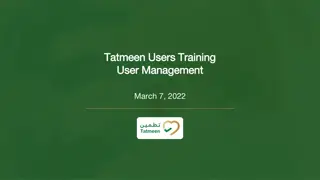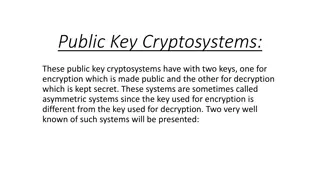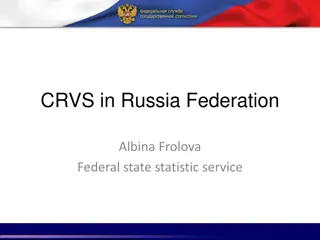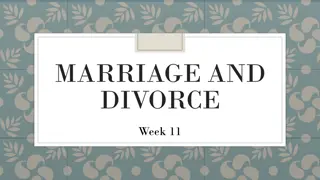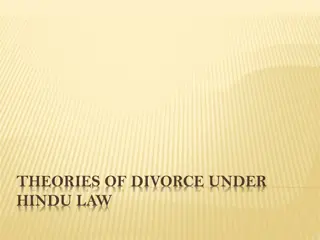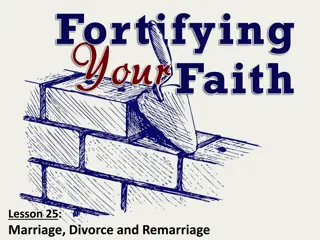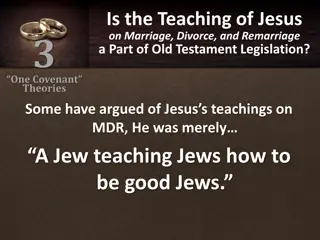Marriage and Divorce Registration in RSA: Practices and Strategies
South Africa's marriage registration system has evolved post-1994 to align with democratic values, social justice, and human rights. The legal framework encompasses various acts and regulations, ensuring proper registration processes for both traditional and civil marriages. Strategies are in place to accelerate divorce registration and uphold the principles of equality and fairness.
Download Presentation

Please find below an Image/Link to download the presentation.
The content on the website is provided AS IS for your information and personal use only. It may not be sold, licensed, or shared on other websites without obtaining consent from the author. Download presentation by click this link. If you encounter any issues during the download, it is possible that the publisher has removed the file from their server.
E N D
Presentation Transcript
Marriage and divorce registration in RSA Patrick Williams Department of Home Affairs South Africa 1
Content of presentation Content of presentation Purpose Background Marriage legal framework Registration process Benefits of legislating marriage Divorce process Strategies for accelerated divorce registration 2
Purpose Purpose To present South Africa s practices and strategies to accelerate marriage and divorce registration . 3
Background Background In 1994 South Africa inherited a marriage regime that was based on the Calvinist Christian and Western traditions which stemmed from the era where the State and church were mutually reinforcing if not synonymous. Historically, monogamous marriages of heterosexual black persons were governed by the partly repealed Black Administration Act 38 of 1927, whilst white persons were governed by Marriages Act of 1961. In addition, the democratic dispensation also inherited the marriage systems of the former homelands in which a woman would be entitled to NOTHING after divorce. South Africa as a country developed a constitution which establishes a society based on democratic values, social justice and fundamental human rights. During democratic dispensation, South Africa introduced various pieces of Marriage legislation, which strive to give effect to the spirit of the constitution. All marriages if registered is recorded in the National Population Register against an individualized ID number. 4
Marriage Legal Framework Marriage Legal Framework Constitution Recognition of Customary Marriage Act 120 of 1998 Marriages Act 51 of 1961 Civil Union Act 17 of 2006 Regulations: Detailed outline of requirements to be met by both Marriage Officers and Parties in marriage Standard Operating Procedures: Provide step-by-step procedure to be followed by a marriage registrar 5
Registration process In order to give effect to the legislated marriages and provide access to persons who want to enter into a legal union, the following processes were implemented through regulations: Appointment of Internal marriage officers to solemnize and register marriages immediately (i.e. 270 officials soleminize marriages countrywide in Home Affairs offices) Appointment of External marriage officers (13 504 countrywide) apply, trained, examined, certificated Marriage officer licenses are issued & renewable after every 10 years Submit marriage registers immediately after solemnization Magistrates can also solemnize marriages (as ex-officio members) Customary Marriage registration rely on evidence produced by individuals who wishes to register their marriage and their witnesses that such marriage was conducted in line with customary law. 6
Benefits of legislating Benefits of legislating marriages marriages Promotion of democratic values of human dignity, equality and freedom. Respect, protection of both parties entering into union, Promotion and fulfilment of the rights in the Bill of Rights. Economic benefits (e.g. settlement of deceased estates) 7
Divorce process (Divorce Act, Act 70 of 1979) Divorce process is administered by Justice in a court of law Justice regulates legal consequences of marriages Competent court issues Decree of divorce Decree of divorce handed to parties Parties submit to Home Affairs to update marriage status For the period 2019 to 2022 a total number of 41 556 divorce decrees were submitted for status updates for the period) This might not be all divorces that took place as many persons still assume that once divorced their status at Home Affairs is automatically updated. 8
Challenges and mitigations The marriage registration regime has its fair share of challenges which requires harmonization. Challenges Mitigation Multiple marriage regimes which are not inclusive Omnibus or Umbrella Marriage Policy Delays in updates of divorce status System interoperability/interface with DOJ Delays in registration of customary marriages Advocacy 9
